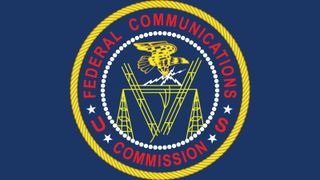FCC: 3.5 GHz Petition Deadline Remains Jan. 7

The FCC is reminding anyone interested in its 3.5 GHz rule change has to get those petitions to reconsider the decision in by the end of the day Monday (Jan. 7), shutdown or no.
The FCC said last week that the shutdown would not affect auctions for auction-related deadlines, but just wanted to put an exclamation point on that.
The FCC voted 3-1 along party lines Oct. 23 to change the rules on licenses for the 3.5 GHz (Citizens Broadband Radio Service) band to make it more attractive for providers of 5G, which includes cable ops looking to up their mobile broadband game.
NCTA-the Internet & Television Association strongly supported the FCC change, so it is unlikely to be asking for reconsideration. Public Knowledge, which backed the previous 3.5 GHZ framework, did not support it, saying the change only benefited large cable operators and wireless carriers.
The change was billed as a way to spur investment in the band and promote more efficient use, including for 5G. The main adjustments are the decision to increase the sizes of priority access licenses (PALs) from census tracts to the larger county-sized licenses, though FCC chair Ajit Pai pointed out that was a compromise from the larger partial economic area (PEA) licenses some had advocated for.
The CBRS band is a mix of PAL licenses and general authorized access (GAA) unlicensed use.
The FCC also extended the license terms from 3 to 10 years and added a presumption of renewal. All things the FCC majority said made the band more attractive to investors and bidders for the spectrum licenses in an upcoming auction.
Multichannel Newsletter
The smarter way to stay on top of the multichannel video marketplace. Sign up below.
The FCC is also making it easier to sell the PAL licenses in the secondary market. The item also includes rules to support wider bandwidth channels while maintaining interference protections, which the commission said would provide certainty and stability for broader deployments in the band by an array of users.
Contributing editor John Eggerton has been an editor and/or writer on media regulation, legislation and policy for over four decades, including covering the FCC, FTC, Congress, the major media trade associations, and the federal courts. In addition to Multichannel News and Broadcasting + Cable, his work has appeared in Radio World, TV Technology, TV Fax, This Week in Consumer Electronics, Variety and the Encyclopedia Britannica.

